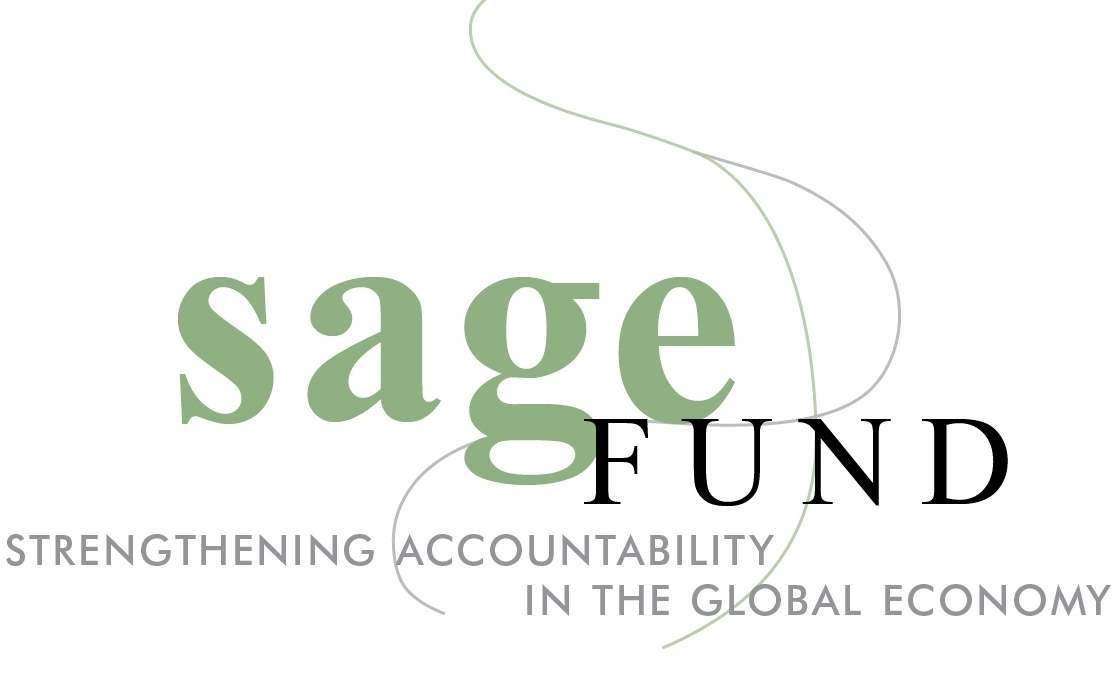Fair Finance International
organization
Oxfam Novib
description
Fair Finance International is a network of civil society coalitions in fourteen countries, with five more country coalitions expected to join in the coming three years. The coalitions are trained to use a common methodology to investigate financial institutions in their countries and undertake related advocacy. Their goal is to improve the corporate social responsibility policies and practices of financial institutions, including banks, insurers and pension funds, as well as to end or improve investing practices in certain projects or sectors depending how they measure up to international norms and standards. Member coalitions are principally in Europe and Asia (expanding further in Latin America), and composition varies by country and may include NGOs, unions, consumer organizations, lobby groups and others. The coalition began with a focus on policies, but has since become more focused on case studies. The research methodology was first developed by Profundo (see tool #13) and is now updated and improved by coalition members in collaboration with Profundo. Based on publicly-available information, the methodology enables an analysis and comparison of financial institutions’ policies regarding cross-cutting themes (e.g. climate change), sectoral issues (e.g. oil and gas) and operational issues (e.g. transparency and accountability), taking into consideration available standards for each theme.
When CSOs from a country express interest in developing a Fair Finance Guide (FFG), the network offers a 2.5-day training. This includes a general overview of the financial sector and its influence, as well as FFG as a research and advocacy tool. If the country coalition decides to move forward, additional training is provided on the research methodology in collaboration with Profundo. Based on their research, a website is developed to allow clients of financial institutions and other interested parties to compare the policies and practices of the main banking groups in their country. Each country coalition develops advocacy strategies appropriate to their own context, which range from mobilizing individual citizens to engaging with financial authorities. The FFI network is a program managed by Oxfam Novib with several permanent and ad-hoc working groups; the 3 permanent working groups have representation from each coalition: 1) Methodology & Research; 2) Website and Communications; and 3) Coordination. They hold an annual assembly every December.
The Asian coalitions work together in Fair Finance Asia, which focuses on research and engagement with FS and its regulators on a regional level.
impact
Illustration of Impact: The Dutch Fair Bank Guide was the first FFG to be published in 2009. A review of the first five years of the guide found improved policies across banks, themes and sectors, including two banks agreeing to exclude nuclear weapon manufacturers. Such influence has continued to grow. Member coalitions in Indonesia, Sweden, Norway, and the Netherlands have been collaborating to pressure for changes in the palm oil sector in Indonesia, given its serious impacts on communities. Coalitions in Brazil, Sweden, Norway, and the Netherlands have been collaborating for a halt to deforestation and human rights’ abuses by pressuring investors in the Brazilian beef and soy sector.
Constant research, combined with campaigning and engagement resulted in raising awareness for the issues. There has been a realized expansion of the scope of a financier’s responsibility with regard to whom and what they’re financing and increasing engagement between banks and companies. Multiple banks in various FFG countries have changed their policies and practices concerning investments in coal and agricultural commodities.
As a result, company behaviour has been influenced:
• The Dutch FFG report on investments by insurers in controversial arms trade (with a focus on arms trade with Saudi-Arabia and the impacts on civilians in Yemen) resulted in one insurance company promising to start engagement with one company on this issue in close coordination with FFI Netherlands, and there is an effort underway to involve other investors (insurers) as well.
• All 7 banks and 8 insurance companies assessed by Fair Finance Japan have established policies to limit coal financing in 2020.
• TMB Bank was the first Thai bank to announce in 2020 a clear credit policy, including the list of 27 business areas on its “exclusion list” in 2020, partly as a result of engagement with the Thai Fair Finance coalition.
• Sparkasse KölnBonn, one of the largest banks in the public law pillar of the German banking system, divested from a range of controversial arms producers and oil & gas companies in its main investment fund.
• Financial institutions in the Philippines improved their ESG disclosures in 2020, partly due to the active engagement of Fair Finance Philippines during the capacity-building activities and consultations held in line with the bank policy assessments.
